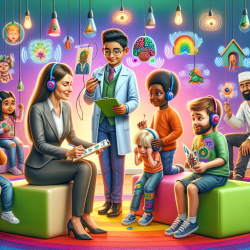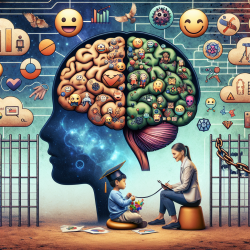Introduction
The pursuit of optimal educational outcomes for children has always been a primary focus for educators and researchers alike. A recent systematic review and meta-analysis titled "Twenty-first century adaptive teaching and individualized learning operationalized as specific blends of student-centered instructional events" by Bernard et al. (2019) offers valuable insights into how adaptive teaching and individualized learning can significantly enhance student achievement. This blog aims to distill the key findings from this research and provide actionable strategies for practitioners to improve their teaching methods.
Key Findings from the Research
The meta-analysis by Bernard et al. (2019) reviewed 299 studies encompassing 43,175 students, focusing on the impact of student-centered versus teacher-centered instructional methods. The findings revealed that more student-centered instructional conditions had a moderate positive effect on student achievement compared to less student-centered approaches. The study identified four critical dimensions of instruction that influence student outcomes:
- Flexibility: The degree to which students can contribute to course design, select study materials, and set learning objectives.
- Pacing of Instruction: Allowing students to decide the pace of their learning and whether progression is linear or iterative.
- Teacher's Role: Ranging from an authority figure to an equal partner in the learning process.
- Adaptability: The extent to which learning environments, materials, and activities are tailored to be more student-centered.
Implementing Adaptive Teaching and Individualized Learning
Based on the findings, here are some strategies practitioners can implement to foster a more student-centered learning environment:
1. Flexibility in Course Design
Encourage students to participate in designing their learning paths. Allow them to choose topics of interest and set personal learning goals. This approach not only increases engagement but also helps students take ownership of their learning.
2. Adaptive Pacing
Provide opportunities for students to progress at their own pace. Use formative assessments to gauge understanding and adjust instruction accordingly. This method ensures that students fully grasp concepts before moving on to more complex topics.
3. Redefining the Teacher's Role
Shift from being the sole source of knowledge to a facilitator of learning. Encourage collaborative learning and peer tutoring, where students can learn from each other under your guidance. This approach has been shown to enhance understanding and retention of information.
4. Adaptability in Instruction
Tailor learning activities and materials to meet the diverse needs of students. Use data from assessments to identify areas where students need additional support and provide targeted interventions. This personalized approach helps address individual learning gaps effectively.
Encouraging Further Research
While the findings from Bernard et al. (2019) provide a strong foundation, continuous research is essential to refine and expand our understanding of adaptive teaching and individualized learning. Practitioners are encouraged to engage in action research within their classrooms, documenting the impact of these strategies on student outcomes and sharing their findings with the broader educational community.
Conclusion
Implementing adaptive teaching and individualized learning strategies can significantly enhance educational outcomes for children. By incorporating flexibility, adaptive pacing, a redefined teacher's role, and tailored instruction, educators can create a more engaging and effective learning environment. For a deeper dive into the research, practitioners are encouraged to read the original paper by Bernard et al. (2019).
To read the original research paper, please follow this link: Twenty-first century adaptive teaching and individualized learning operationalized as specific blends of student-centered instructional events: A systematic review and meta-analysis.










